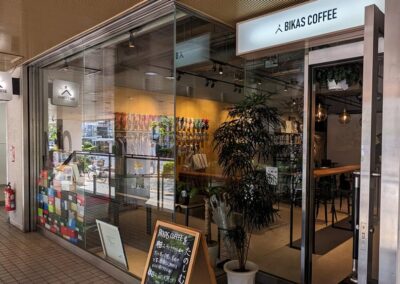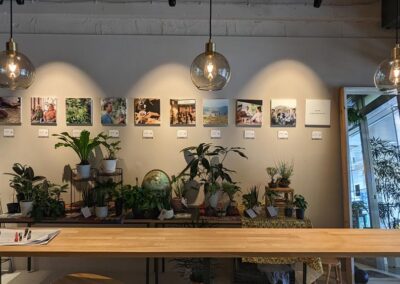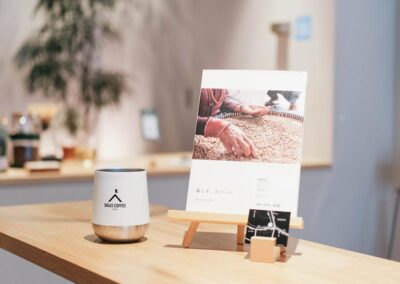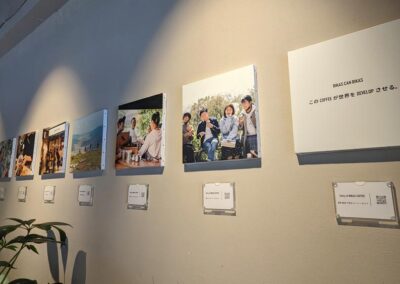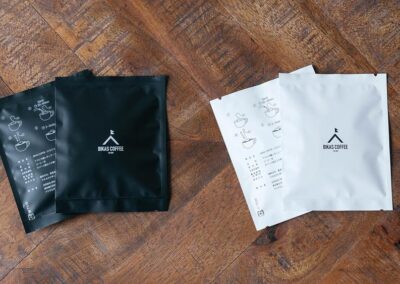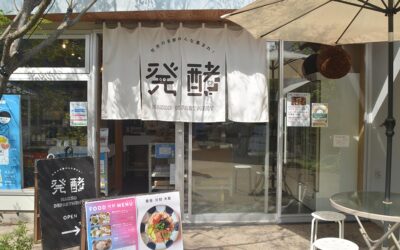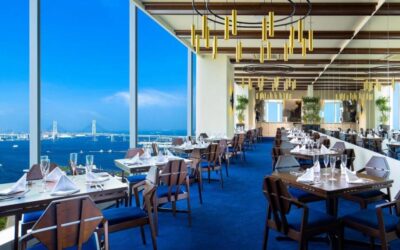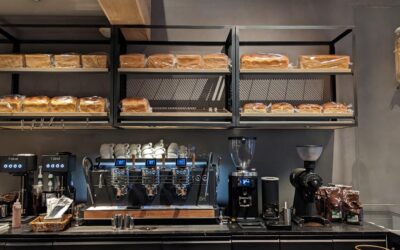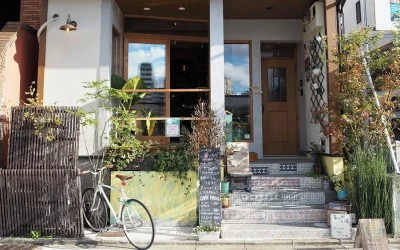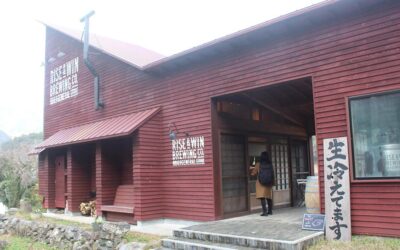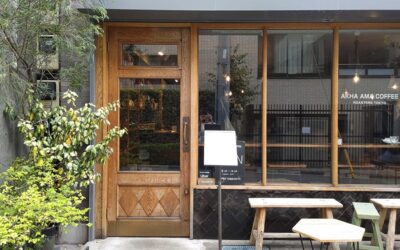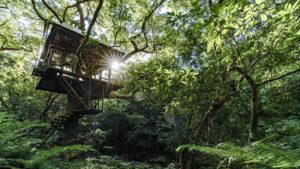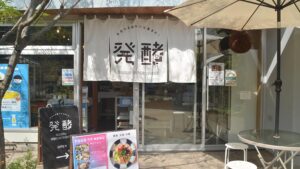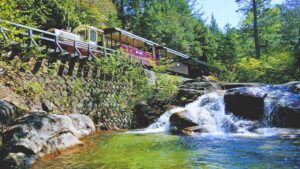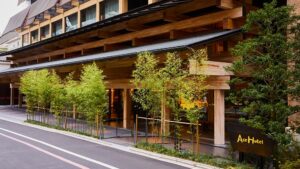Where each cup of ethical coffee empowers people
“Bikas” in Nepali language means “development.” But before it became the name of the coffee brand, it was a nickname that Yuki Kan, Brand Manager of BIKAS COFFEE, received when he was volunteering in Nepal during university days to build a school for the locals.
Kan: “BIKAS was originally given to me as a nickname so the Nepali locals would be able to address me. I didn’t think that the nickname would be a source of experience and inspiration to empower others.”
And that has led Kan to today’s efforts to bring ethical, fair trade coffee from Nepal to Japan.
A mission to empower Nepali communities
Empowerment is a personal theme for Kan. Kan launched NGO DREAM-Hack a few years later after returning from Nepal, with the aim to create empowering opportunities for individuals.
Kan: “I wanted to do more for Nepal, so I founded DREAM-Hack to address social issues such as education, human trafficking, and sex discrimination. One of the things I wanted to do was to create an environment where children could get education. If there were not enough schools, we could build them.
“But Nepal has more needs than that. Say there’s no library in the school. If we built a library, we still lacked computers. If we bring in computers, we do not have enough teachers. It was an endless list of ‘have nots.‘
“So rather than framing solutions as filling gaps in needs, we began focusing instead on the potential of the existing resources Nepal possessed. Nepal may not have Japan’s conveniences like nearby convenience stores, but Nepalis also have their lifestyle and happiness that I would like to share with others.”
Bringing Nepal’s sustainable coffee to Japan
It was when Kan saw the shine of potential in Nepal’s coffee as a path towards empowering individuals. The coffee BIKAS COFFEE brings in comes from the Harpan Village, which is located at an elevation of about 1,200 meters above sea level.
Kan: “Coffee exports from Nepal may not be high, but global attention has been increasing. And Nepal’s coffee is something valuable that we could introduce to the world. BIKAS COFFEE could introduce Nepal to Japan and offer their ethical coffee for consumption. This would then return resources needed to empower the local community.
“The lifestyle of the villagers is one of self-sufficiency, where the community grows food for their consumption within the boundaries of what nature provides. What this also means is that the produce is unconsciously and naturally organic.”
In fact, Harpan’s coffee plantation practices agroforestry. Agroforestry is a land use system that combines trees or shrubs with crops or livestock in the same area. It is designed to improve productivity and increase biodiversity, thus making this agricultural method sustainable. Unlike unsustainable coffee plantations that sacrifice the surrounding environment and ecosystems for mass production, Nepalis understand that nature needs to be treasured too. Agroforestry was the instinctive conclusion of their admirable attitude towards nature.
Nepal’s coffee is not immune to climate change
Kan: “Even though they grow the coffee for supplementary income, Nepalis coffee farmers are already starting to feel the effects from climate change. Coffee harvest at plantations occurs every two years. Even though the harvest amount varies from year to year, Nepal is already noticing a decreasing trend in harvest.”
“Nepalis feel that the region is getting colder through the years. Coffee trees need elevation to grow because of the changes in temperature. The recent shift in temperature changes make coffee fruits difficult to bear.”
Indeed, the climate crisis is already here. It is estimated that global coffee production will decrease by 50% by the year 2050. Coffee lovers will drink less and pay more for their favourite coffee in the future unless action is taken to curb the crisis.
BIKAS COFFEE’s approach towards ethical coffee
BIKAS COFFEE Real store is located in Bunkyo Ward in Toyko, and opened in October 2021. Here you can enjoy a cup of coffee at the cafe, and even if you are not in Tokyo, their coffee beans are available for purchase on their online store.
The cafe tries to avoid using plastic, and offers paper butterfly cups to those who want to drink on the go. Kan admits that there is still work to reduce waste and continues striving towards improvement.
BIKAS COFFEE Real store also utilizes drink tickets. When 33 drink tickets have accumulated, BIKAS COFFEE will plant a coffee tree in the Harpan coffee plantation.
Kan: “33 is roughly the number of cups of coffee that can be produced from one coffee tree. So even though customers are drinking coffee as an everyday activity, they are actually contributing to the future of coffee.”
Planting your own coffee trees connects you with coffee farmers
Planting coffee trees is one of BIKAS COFFEE’s biggest activities, under the BIKAS COFFEE VILLAGE Project. The project has launched two highly successful crowdfunding campaigns (third one coming this month). One of the returns for the projects is supporters are able to plant and name the coffee trees themselves.
Kan: “One of the reasons we focused on planting coffee trees is because of the climate crisis. Nepal coffee farmers will be affected by the fall in coffee production. By encouraging the planting of coffee trees, supporters are doing the environment good and supporting the livelihoods of coffee farmers. Rather than drinking coffee that is mass produced for mass consumption, supporters will be able to drink the coffee they have planted when they are harvested and delivered to them three years later.”
“Furthermore, planting trees is part of our traceability process. When we buy fair trade coffee, we will be able to learn about who the coffee farmers are and the process they go through. On the contrary, the farmers do not know who the consumers are. There is ‘distance’ in the lengthy process from coffee growing to reaching the end consumer. By allowing supporters to plant coffee trees, it becomes a motivating factor for the farmers to know for whom they are growing coffee.”
GLOBALACTION for society’s well-being
While BIKAS COFFEE’s activities surround coffee, what drives their efforts is the belief in taking action.
Kan: “GLOBALACTION is a keyword for us. What it means is taking action beyond ourselves. Each of us, whether the coffee lover or the coffee farmer, has things we desire to do. We want to encourage taking action not only for personal enjoyment but also for the benefit of society.
“Not everyone knows about sustainability or coffee, including some Nepalis. But through BIKAS COFFEE, they have come to resonate with how we think about ethical consumption. BIKAS COFFEE becomes that opportunity to learn about contribution to society.”
Remember, empowerment’s importance within the efforts of BIKAS COFFEE. Through taking sustainable action, we are creating opportunities for others to achieve. It offers the choice and environment for things to happen. And that is where the magic of well-being of individuals and society can come from.
Kan: “We like to invest in people. Some might take profits to improve their technology or put them towards marketing to push sales. Instead, we’d want to invest in empowering individuals to achieve their personal aspirations. Opposed to unending scaling and growing economies, we envision individuals achieving happiness, and that is where BIKAS puts our focus into.”
Weekend BIKAS COFFEE: 2 cups of ethical coffee out of 10
Kan: “It’s not as though our customers are knowledgeable about coffee, familiar with Nepal, or even understand exactly what sustainability means. Therefore, through our coffee, our customers become ethical unconsciously.”
It is a Japanese trend to incorporate sustainability into everyday lives. Customers enjoy sustainable products or services for enjoyment before discovering the inherent sustainability values. And BIKAS COFFEE makes it easy for customers to do so.
Kan: “It is estimated that a Japanese coffee drinker consumes ten cups of coffee every week. However, to ask the average consumer, who may not be equipped with sufficient knowledge, to do the work and make the transition of all ten cups towards ethical coffee can be a tall order.
“That is when we came up with the theme of ‘Weekend BIKAS COFFEE.’ Many may buy coffee from convenience stores as a routine during the weekdays, but the weekend offers a break from the routine. It can be a weekend when hanging out with precious friends, or when gifting yourself for something good happening during the week. We’d like to offer our coffee as ethical alternatives for these special moments.”
BIKAS COFFEE is promoting a casual sense of sustainability as a stepping stone, to make that 20% change. Provocators will probably ask us to do more, like going for 80% for more. (We’ve been here before, discussing how zero waste is not about 100% zero waste but the spirit of reducing waste.) However, that is, of course, we are assuming that everyone can make that choice. Furthermore, if we are not trained to be mindful of our consumption pattern, coffee becomes something we don’t think much about because of how often we drink them. Why not then, “something special for a special moment” like “Weekend BIKAS COFFEE?”
Originally published Zenbird Media.


